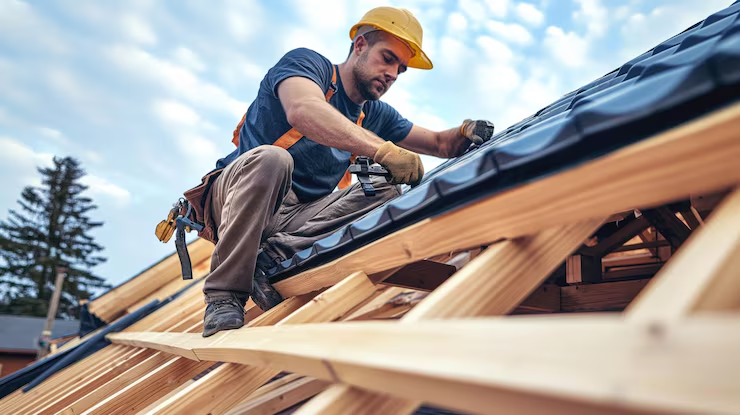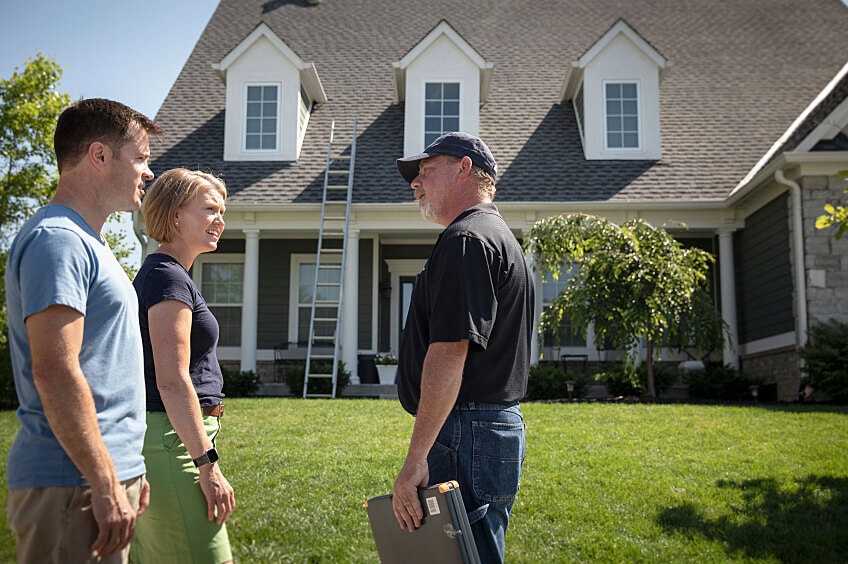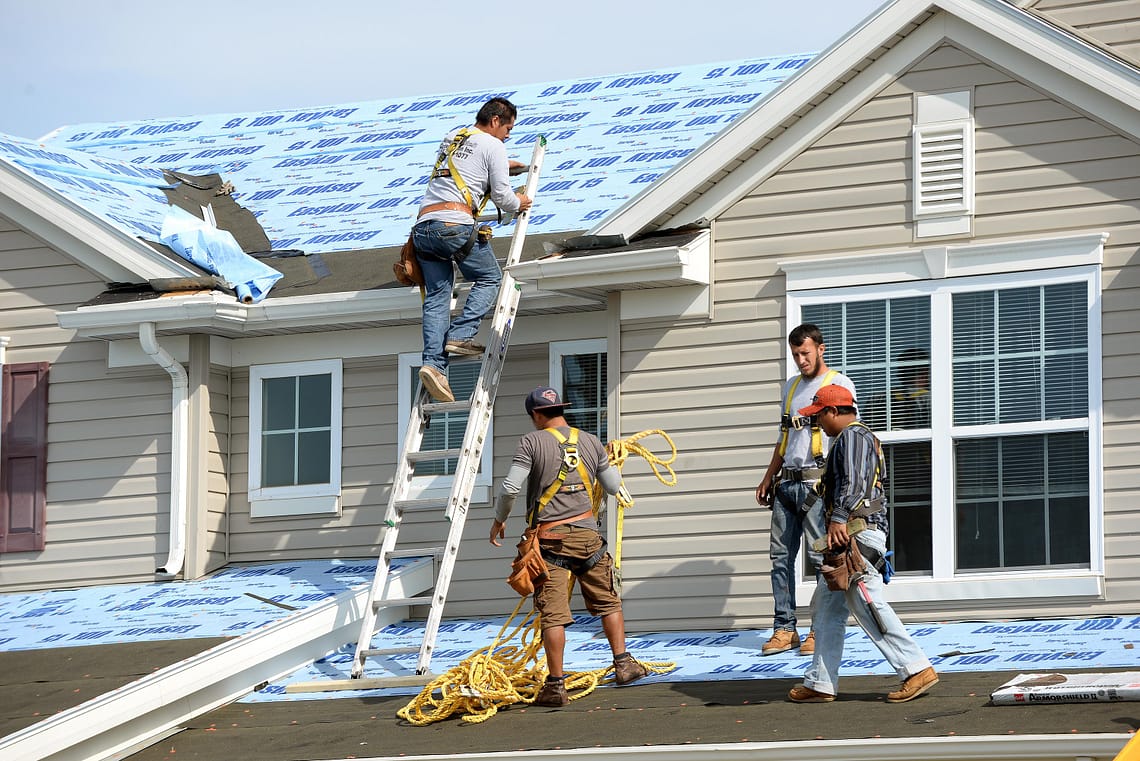A roof is more than shingles on a house—it’s your first line of defense against weather, heat loss, and long-term structural damage. Choosing the right residential roofing contractor matters: the wrong hire can lead to leaks, poor warranties, and expensive repairs down the line. Yet many homeowners treat roofing like a commodity, chasing the lowest quote instead of the best combination of quality, reliability, and value.
This guide walks through how to select a trustworthy roofer, what questions to ask, common red flags, and practical tips to protect both your home and your wallet. Think of it as a checklist that helps you hire confidently and avoid costly mistakes.
1. Know what you need before you call
First, clarify the scope of the project. Is it a full roof replacement, a localized repair, or a preventive inspection? Different jobs require different expertise.
Why it matters:
A contractor who specializes in small repairs may not have the equipment, crew, or warranty program to handle a full reroof. Conversely, a large commercial roofer may not prioritize residential service quality.
Practical step:
Take photos, note visible issues (missing shingles, sagging, stains inside), and list the age and material of your current roof. This information helps contractors give more accurate initial estimates.
2. Get multiple estimates—but compare apples to apples
Request at least three written estimates. But don’t treat price as the sole factor. Compare the details: materials (brand and grade), underlayment, flashing type, ventilation, removal of old materials, and disposal fees.
Checklist for bids:
-
Brand and warranty of shingles
-
Type of underlayment (felt vs. synthetic)
-
Details on flashing, ridge vents, and drip edges
-
Whether old roofing will be removed or layered
-
Cleanup and dumpster removal included?
-
Estimated timeline and start date
Pro tip:
A significantly low bid usually hides inferior materials, rushed workmanship, or missing services. Pay for clarity, not ambiguity.
3. Verify licensing, insurance, and local requirements
Ask each contractor for proof of license (if your state/county requires it), general liability insurance, and workers’ compensation. Verify documents directly with the issuing agency if possible.
Why it matters:
Without proper insurance, you could be liable for injuries on your property. Licensing ensures the contractor meets minimum professional standards and allows you to file complaints if work is substandard.
What to request:
-
Current business license and contractor license number
-
Certificate of insurance with your name added as “certificate holder” (ask your agent how to confirm)
-
Proof of worker’s comp or a written explanation if they’re an owner-operated business
4. Ask about warranties and workmanship guarantees
Material manufacturers offer product warranties, but those only apply if the materials were installed correctly. A good contractor provides both a manufacturer-backed and a contractor workmanship warranty.
Key questions:
-
How long is the workmanship warranty? (Common: 1–10 years.)
-
Is the workmanship warranty transferable if I sell my house?
-
Will the contractor assist with manufacturer warranty claims if problems arise?
Warning:
A manufacturer warranty that the installer can’t support is nearly worthless in practice. Get assurances in writing.
5. Check references and real-world work
Ask for recent local references—ideally homeowners whose roofs were completed at least a year ago. Visit job sites if possible, or request before-and-after photos.
What to look for:
-
Clean job site and proper debris containment
-
Neat flashing and vent integration
-
Straight, aligned shingle rows and consistent nail patterns (where visible)
-
Follow-up responsiveness after completion
Expert tip:
Search the contractor’s name online for recent reviews, complaints, or photos. Local neighborhood groups can be especially candid.
6. Understand the contract and payment schedule
A clear contract protects both parties. It should spell out scope, materials, timeline, permit responsibilities, cleanup, payment schedule, and dispute resolution.
Red flags in contracts:
-
Large upfront payments (avoid paying more than 10–20% before work begins)
-
Vague material descriptions like “best quality” without brands
-
No mention of permits—responsibility should be clear
-
No clean-up clause or a lack of final inspection process
Recommended payment plan:
-
Small deposit to reserve start date
-
Progress payments tied to milestones (tear-off complete, felt installed, shingles laid)
-
Final payment only after inspection and cleanup
7. Permits, inspections, and neighborhood rules
A reputable contractor will pull required permits and arrange code inspections. Permits protect you by ensuring work meets local building codes.
Why it matters:
Work done without permits can create problems when selling your home, and may be subject to fines or required rework.
Homeowner action:
Confirm that permits will be pulled, and ask how inspections will be documented. Keep copies for your records.
8. Communication and project logistics
Roofing can be disruptive—plan for noise, parking needs, and potential driveway protection. Ask about:
-
Work hours and expected duration
-
Where materials and dumpsters will be staged
-
How roofing nails will be found and removed (magnetic sweepers are commonly used)
-
Protocol for bad weather delays
Good communication is as important as craftsmanship. If a contractor is slow to respond during the estimate phase, they may be worse during the job.
9. Beware of common scams and low-quality shortcuts
Be cautious of door-to-door sales after storms promising immediate discounts or dramatic price increases if you don’t act now. Also watch for:
-
Pressure to sign immediately
-
Requests for full cash payment
-
No physical address or a temporary PO box only
If you suspect fraud, consult your state consumer protection office or local building department.
Conclusion: Prioritize Value, Not Price
Hiring the right roofing contractor requires time and scrutiny—but the payoff is long-term protection for your home and peace of mind. Prioritize contractors who demonstrate clear communication, proper licensing and insurance, strong workmanship warranties, and transparent contracts. Pay attention to the details in bids, verify references, and ensure permits and inspections are handled correctly.
A well-installed roof is an investment that pays back in durability, energy efficiency, and reduced maintenance headaches. When in doubt, choose the contractor who offers the best combination of credibility, craftsmanship, and clear terms—even if their quote isn’t the absolute lowest. Your home (and future self) will thank you.



